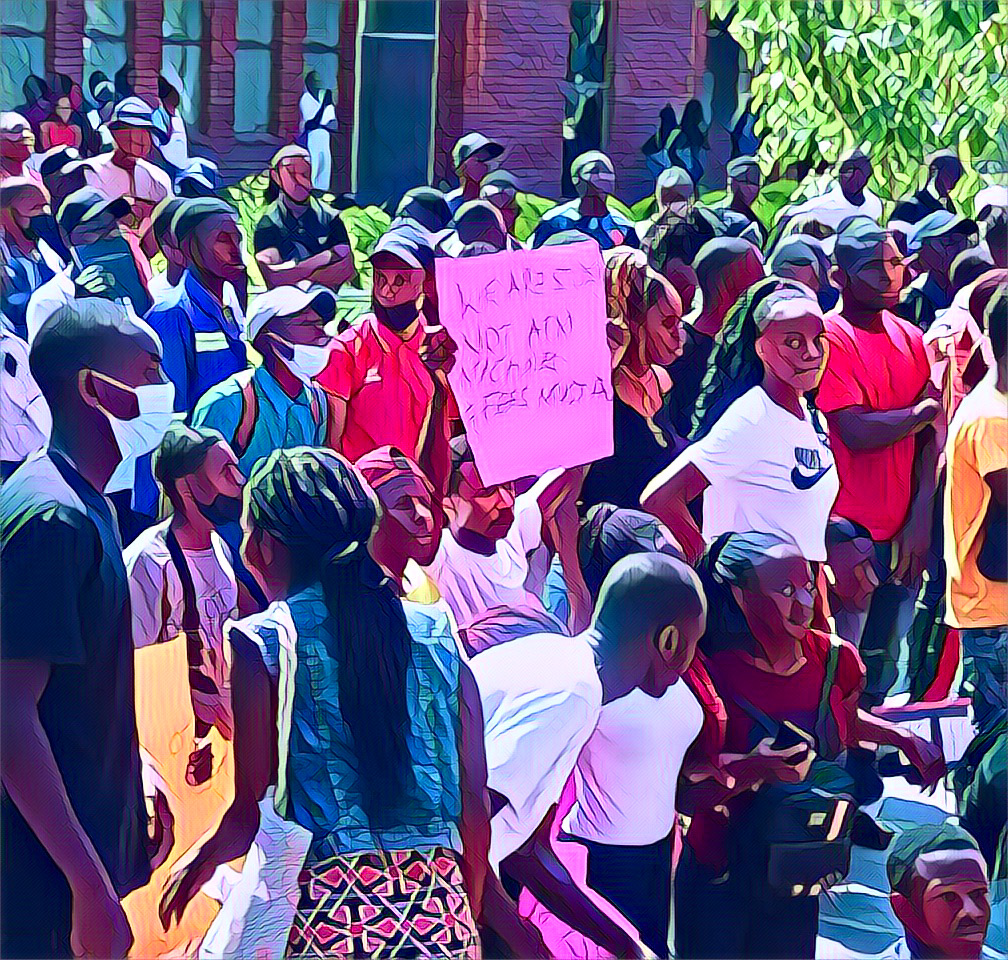Zimbabwean students have voiced their anger over the steep increase in tuition fees by universities and colleges, which they say is a violation of their right to education. The Zimbabwe National Student Union (Zinasu) has organized protests and petitions to challenge the fee hikes, which require students to pay 60% to 70% of the fees in US dollars and the rest in local currency at the interbank rate.
Zinasu vice-president, Rumbidzai Hlangabeza, said many students were forced to defer or drop out of their studies due to the unaffordable fees. “This is a burden to hardworking parents and guardians and it also affects access to education. We are sons and daughters of civil servants who are earning peanuts and we cannot afford the tuition fees,” Hlangabeza told NewsDay.
She added that the United Nations declared education as a right for all children, but the universities were denying them this right by demanding fees in foreign currency. “Why is the school management asking for 60-70% of tuition fees in USD while we are daughters and sons of civil servants whose salaries come in Zimbabwe dollars?” she asked.
Hlangabeza also expressed fear that some students may resort to criminal activities or prostitution to raise the fees, which would affect their mental health and well-being.
The fee hikes come at a time when Zimbabwe is facing a severe economic crisis, with inflation reaching over 300% and the local currency losing value against the US dollar. The government has blamed the situation on sanctions imposed by Western countries, while the opposition and civil society have accused the government of mismanagement and corruption.
The Higher and Tertiary Education Ministry did not respond to requests for comment on the fee hikes. However, some university officials have defended the decision, saying it was necessary to cover the operational costs and maintain the quality of education in the face of economic challenges.
The fee hikes have also sparked outrage among other stakeholders, such as the Zimbabwe Congress of Trade Unions (ZCTU), which has threatened to join the students in their protests. ZCTU president Peter Mutasa said the fee hikes were unjustified and discriminatory, as they excluded the majority of Zimbabweans who earn in local currency. He also said the fee hikes were a sign of the government’s failure to provide adequate funding for the education sector.
The fee hikes are not the only issue affecting the education sector in Zimbabwe. The country has also been hit by a series of teacher strikes over low salaries and poor working conditions, which have disrupted the learning process for millions of students. The COVID-19 pandemic has also posed a challenge for the sector, as many schools lack the resources and infrastructure to implement online learning or adhere to health protocols.
Despite these challenges, some students and teachers have shown resilience and determination to continue their education and pursue their dreams. Some have resorted to crowdfunding, scholarships, or part-time jobs to pay for their fees, while others have formed study groups, used social media, or accessed free online courses to keep up with their lessons. These stories of hope and courage inspire many Zimbabweans to fight for their right to education and a better future.
Source: Bulawayo24


